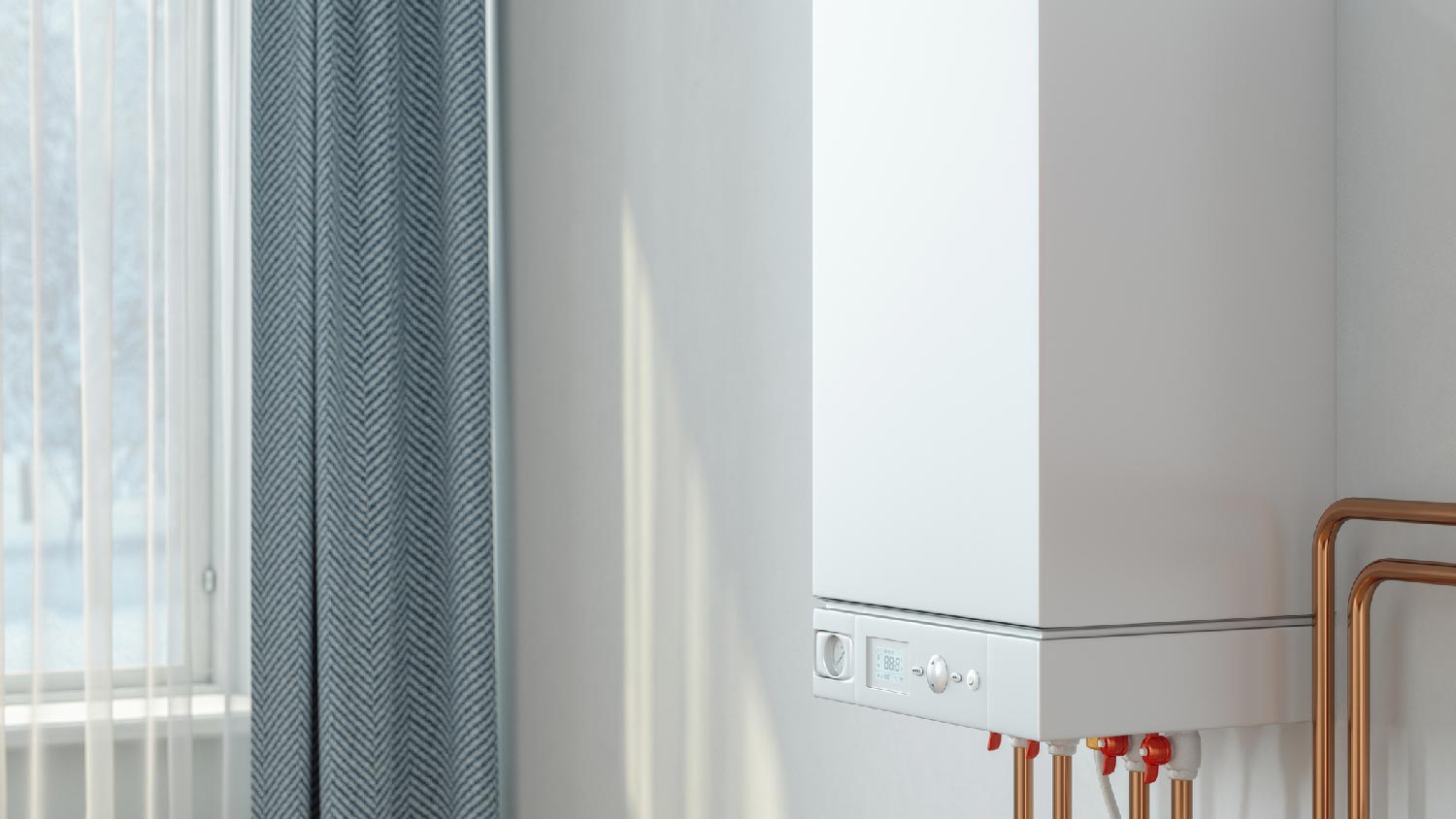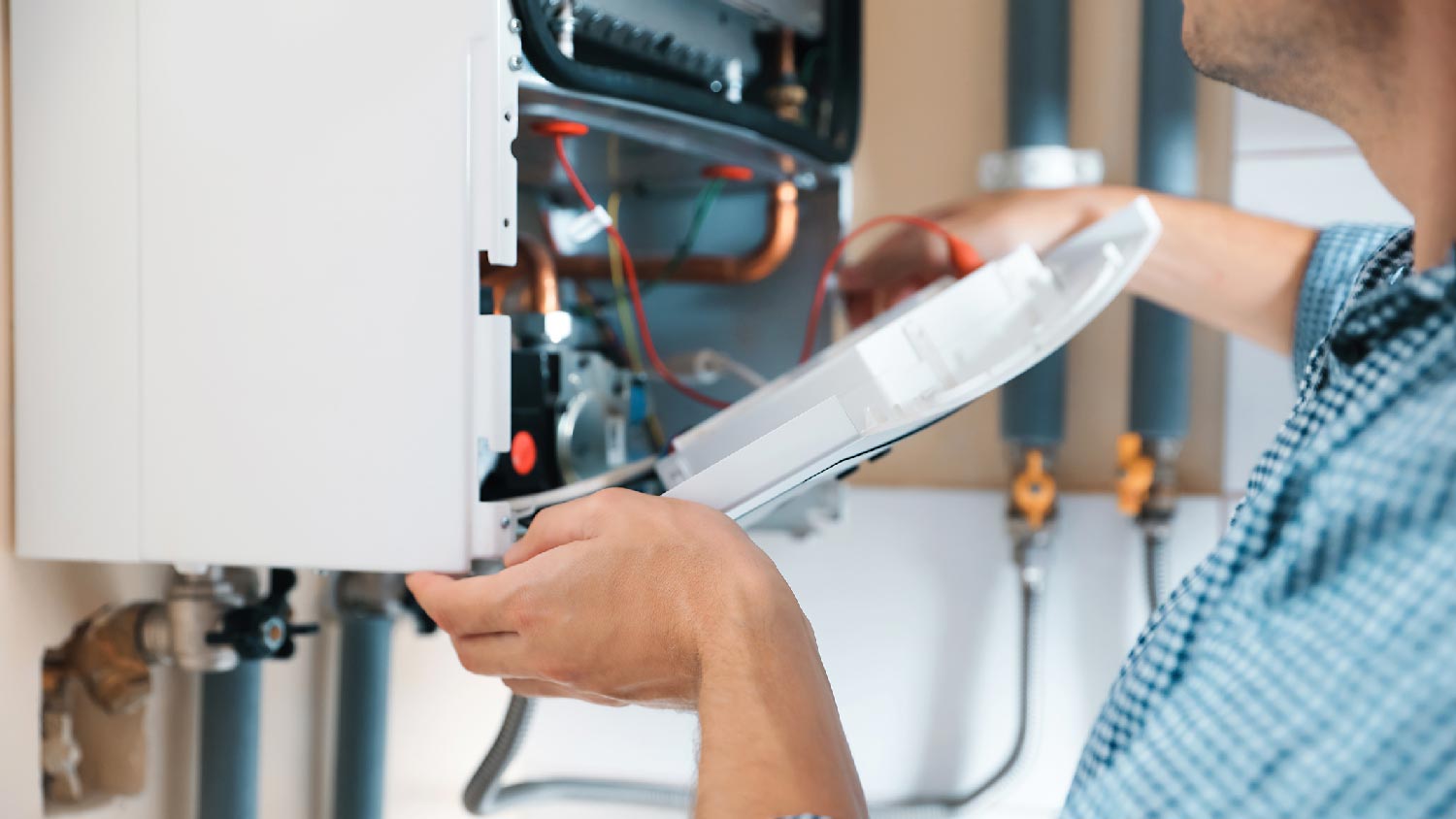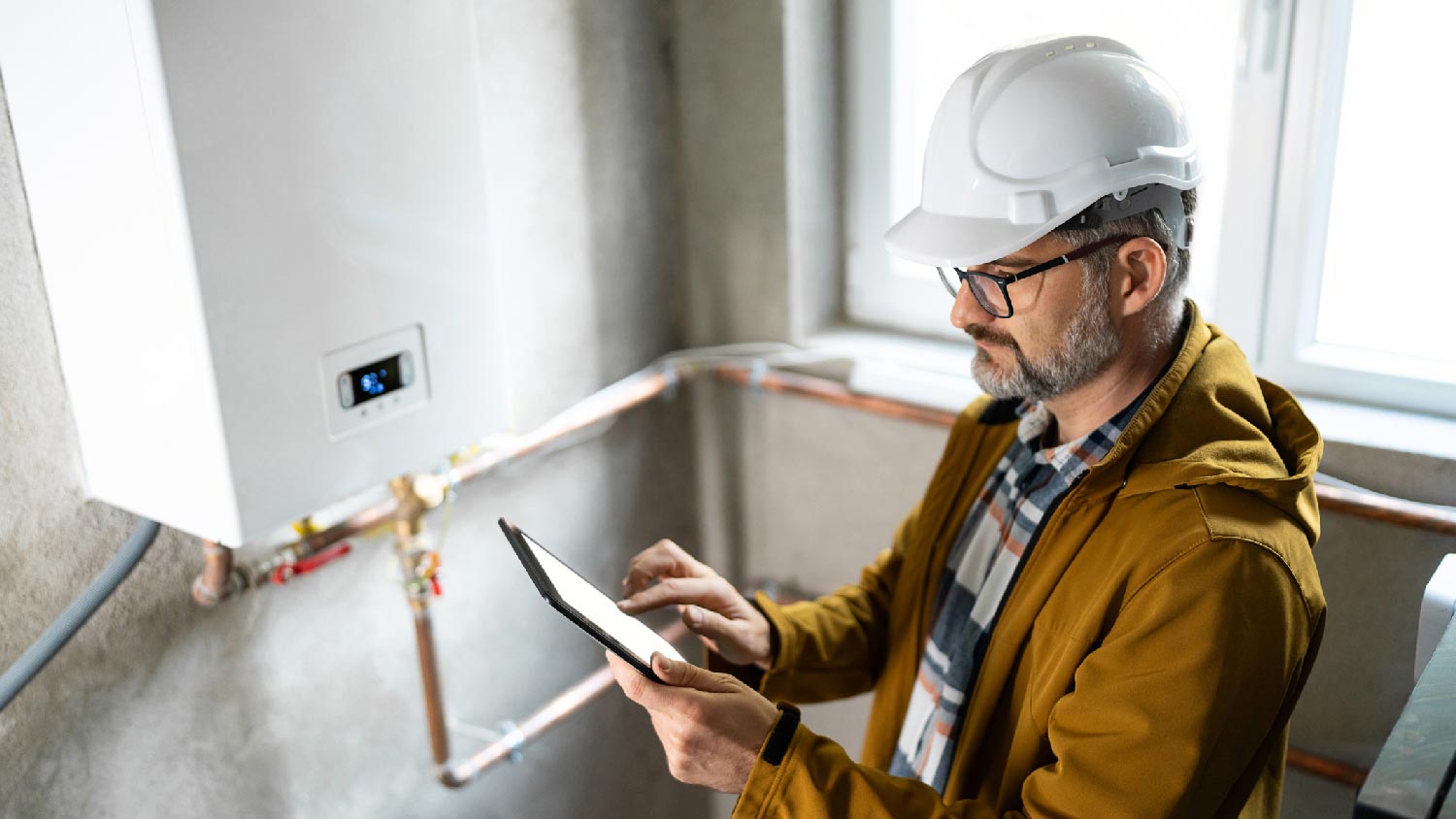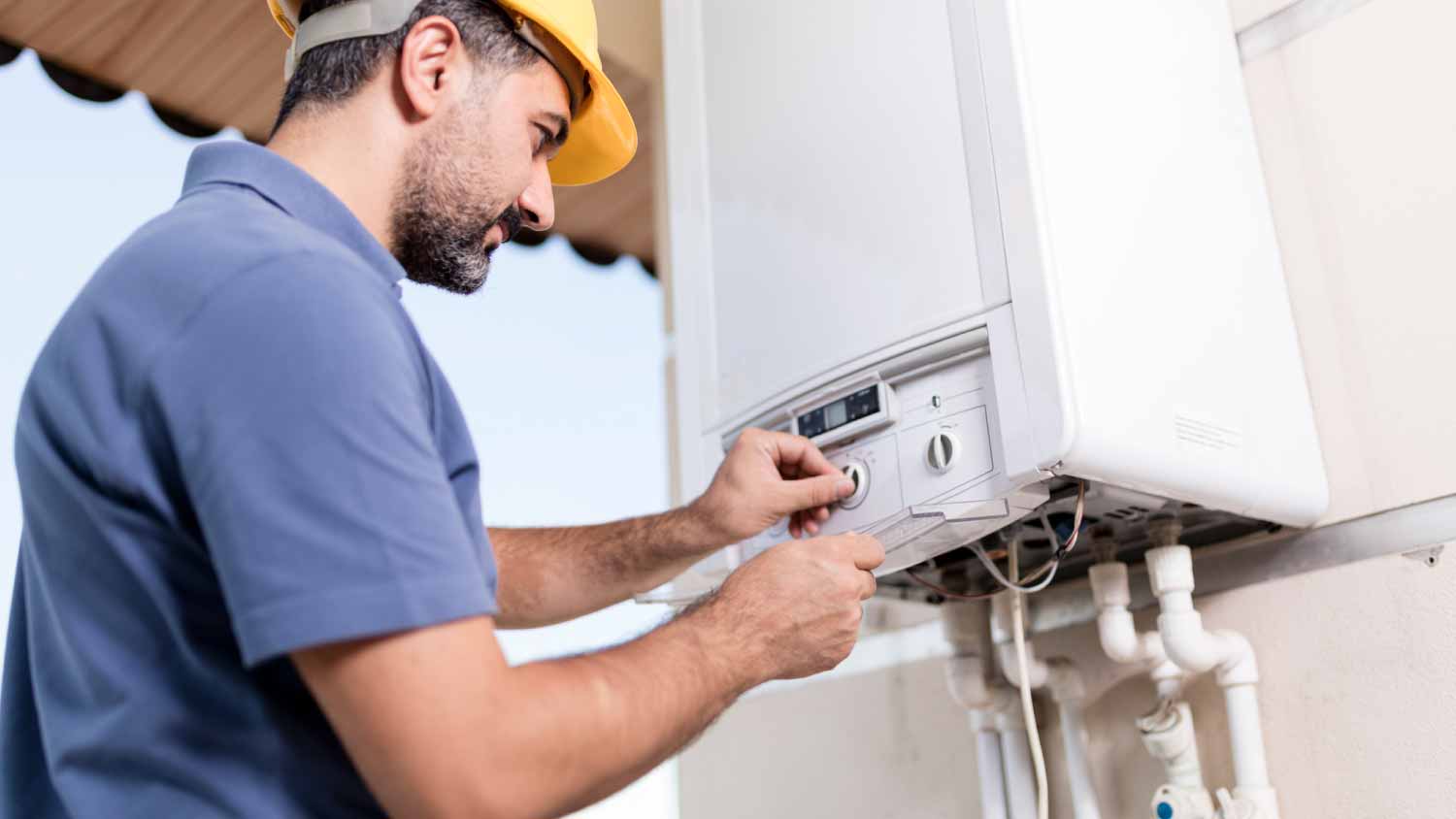Gas Hot Water Heater Not Working? 9 Potential Causes
No hot water? That's not cool


An unlit pilot light is a common reason a gas water heater won't heat.
If the water heater doesn't have a consistent gas supply, you'll notice a lack of hot water.
Issues with gas hot water heaters are best handled by the pros to ensure it's fixed safely.
When the hot water in your house goes out, it can cause mayhem for everyone. If you suspect your gas hot water heater is not working, there are a few reasons why you may have an issue. Learn how to check the hot water heater and start troubleshooting.
1. Pilot Light Issue
The pilot light is a small flame that ignites the gas burner. If it goes out, the burner won’t ignite, and the heater won’t produce hot water. This can go out due to a draft, a dirty or faulty thermocouple, or a gas supply issue.
The Solution
If you know how to light a gas water heater, relighting the pilot light should fix the issue. However, if it continues to go out, have the thermocouple or gas supply inspected by a local water heater repair pro to get to the root of the cause.
2. Gas Supply Issue
A gas hot water heater functions off a consistent supply of gas. If the gas valve is shut off, there is a disruption in the gas line, or the utility company has an outage, the heater won’t be able to produce hot water. Your water heater not heating can happen from a closed gas shutoff valve, a gas leak, or an issue with the utility provider.
The Solution
Check whether the gas valve is open and ensure there are no leaks before restoring the gas supply. If the issue continues, contact your local gas company or a professional plumber to investigate.
3. Dirty or Clogged Burner
Dirt, dust, and debris can accumulate on the burner, blocking the flow of gas and preventing proper combustion. A clogged burner may produce a weak or inconsistent flame or not ignite at all.
The Solution
Clean the burner to remove dirt and debris. If the burner is damaged or corroded, replace it to ensure efficient heating.
4. Malfunctioning Gas Control Valve

The gas control valve regulates the flow of gas to the burner. If it malfunctions, gas struggles to reach it and prevents the heater from producing hot water. This can happen because of internal wear, corrosion, or a faulty safety mechanism.
The Solution
The best way to resolve this issue is to replace the faulty gas control valve. Since gas control valves are complex and require precise installation, hire a water heater professional to do the job.
5. Ventilation Problem
Proper ventilation keeps the water heater functioning safely. If the vent is blocked by debris, combustion gases can build up, affecting burner performance and triggering safety shutoffs. Inadequate ventilation can also cause backdrafting, where harmful gases like carbon monoxide re-enter the home.
The Solution
Clear obstructions in the vent to promote proper airflow. If ventilation continues to be an issue, hire a pro to inspect and adjust the system for optimal venting. Sometimes, installation is to blame for this issue, so readjusting the system can help.
6. Sediment Build-Up in the Tank
Minerals and debris from water can settle at the bottom of the tank over time. This buildup insulates the burner from the water, reducing efficiency and risks overheating. If left untreated, the heater may take longer to heat water or stop working altogether.
The Solution
Flushing the tank periodically helps remove sediment and restore efficiency. If the buildup is excessive or the tank is damaged, hire a pro for maintenance or consider replacement if cleaning doesn't suffice.
7. Thermostat Issue
If the thermostat is set too low, is faulty, or incorrectly calibrated, the water may not reach the desired temperature or simply not heat at all. A malfunctioning thermostat can also prevent the burner from activating.
The Solution
Adjusting the thermostat setting may easily resolve the issue. However, if it's faulty, replacing it is the best option. If you notice consistent temperature fluctuations, have a pro inspect the system.
8. Faulty Thermocouple
The thermocouple is a safety feature that detects whether the pilot light is lit. If it’s malfunctioning or dirty, it can mistakenly shut off the gas supply. A worn-out thermocouple can make it difficult to keep the pilot light on.
The Solution
Cleaning the thermocouple may help, but if it is damaged or faulty, replacing it is the best solution. A local water heater professional can properly install and test the thermocouple to maintain safety.
9. Ignitor Issues
Some gas water heaters use an electronic ignitor instead of a pilot light to ignite the burner. If the ignitor is faulty, damaged, or not receiving power, it won’t be able to start heating. Common causes include worn-out components, electrical issues, or dirt buildup.
The Solution
Checking for power supply issues and cleaning the ignitor may resolve minor problems. If the ignitor is faulty, replacing it will restore proper function.
Signs Your Gas Hot Water Heater Is Not Working

Here are some common signs your gas water heater isn't operating as it should:
The heater fails to produce hot water.
Inconsistent water temperature, fluctuating between hot and cold.
Running out of hot water quicker than usual.
Strange noises like popping or rumbling, which is due to sediment buildup.
A rotten egg smell like a sulfur odor may indicate a gas leak. This requires immediate attention.
The pilot light won’t stay lit, or the gas water heater is not lighting.
Rusty or dirty water coming from faucets.
Leaks around the heater or water pooling at the base of the unit.
Higher gas bills, which shows the unit is working inefficiently.
When to Call a Pro
With a gas hot water heater, reaching out to a pro is your best course of action to prevent further problems or safety risks. Issues involving a gas leak, a pilot light that won’t stay lit despite multiple attempts or a complete lack of hot water even after checking the thermostat and gas supply could indicate serious safety hazards. If you notice water pooling around the base of the heater, the tank may be leaking, which means it needs to be replaced.
If basic troubleshooting, such as flushing the tank or relighting the pilot light, doesn't resolve the issue, call a water heater technician near you for proper diagnosis and safe repairs.
"To prevent carbon monoxide exposure from a water heater, make sure it is properly ventilated. You should also have it inspected and cleaned every year and install a carbon monoxide detector nearby. If you smell gas—which can mimic the scent of rotten eggs—evacuate immediately and call your gas company."
Frequently Asked Questions
Gas water heaters can last between eight and 12 years on average. How long a gas water heater lasts depends on water quality, usage frequency, and regular maintenance. Signs that your heater may be nearing the end of its life include rust-colored water, leaks, strange noises, and a decline in efficiency. If your unit is over a decade old and experiencing frequent issues, replacing it may be more cost-effective than continuous repairs.
Your gas water heater should be flushed at least once a year to remove sediment buildup. If you have hard water, flush it every six months to prevent mineral deposits from building up. Neglecting this maintenance task can lead to clogs, overheating, and increased energy consumption.
















